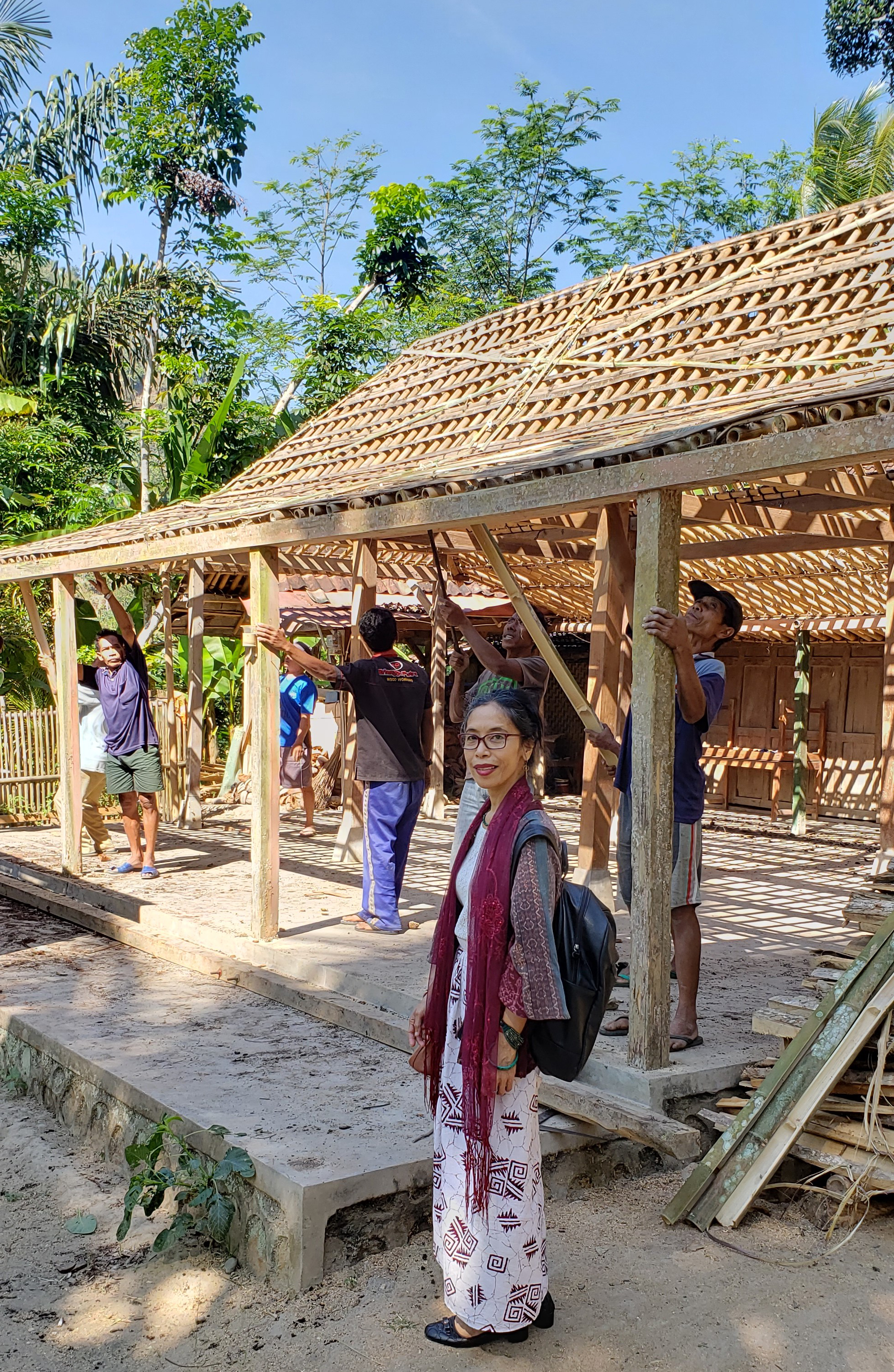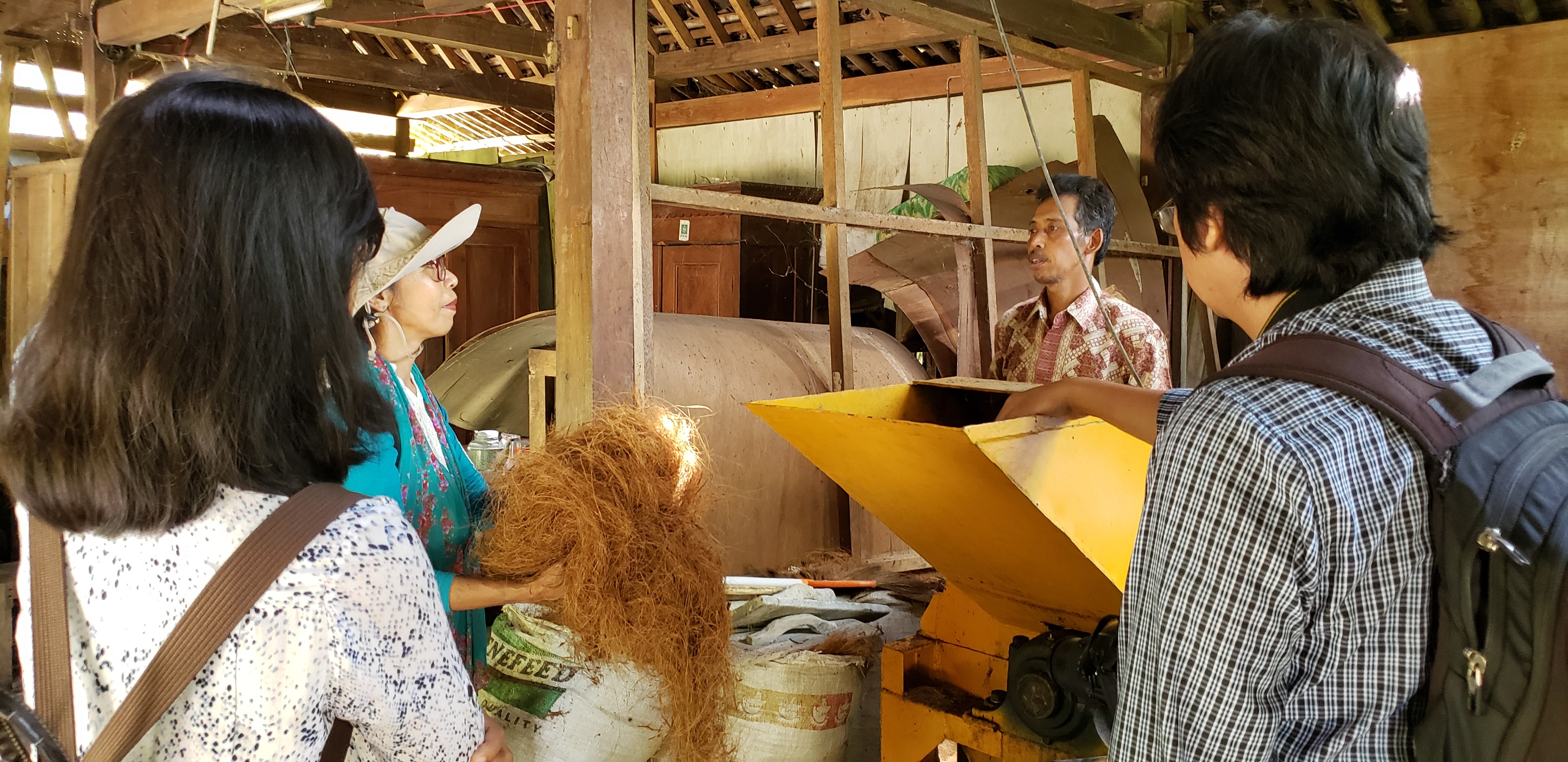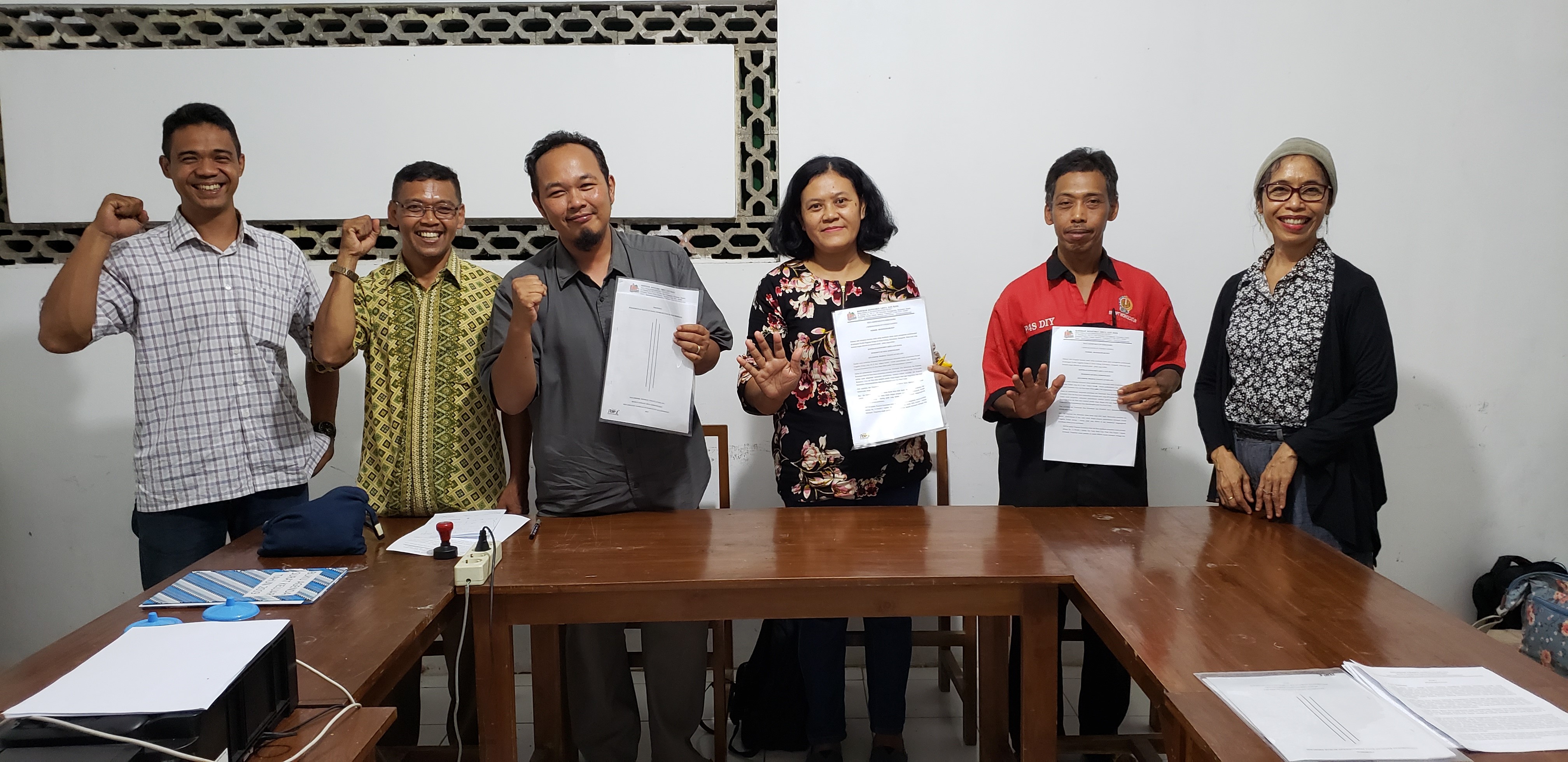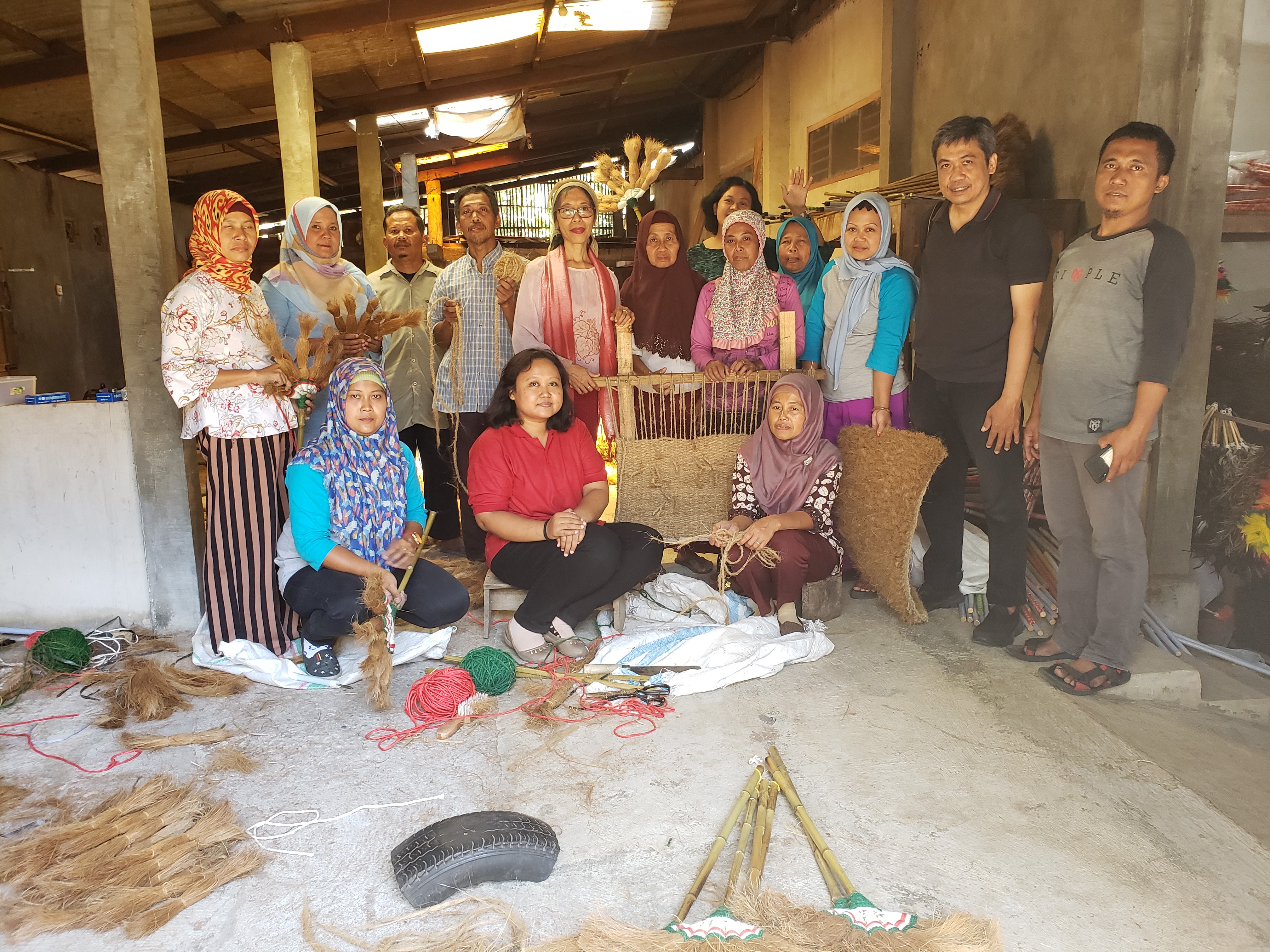A Letter from Farsijana Adeney-Risakotta, serving in Indonesia
September 2019
Write to Farsijana Adeney-Risakotta
Individuals: Give to E200303 for Farsijana Adeney-Risakotta’s sending and support
Congregations: Give to D506007 for Farsijana Adeney-Risakotta’s sending and support
Churches are asked to send donations through your congregation’s normal receiving site (this is usually your presbytery)
Subscribe to our co-worker letters
Dear family and colleagues,
Greetings from Yogyakarta, Indonesia.
David, our grandson from Berkeley, just spent two weeks with us. What a pleasure for us both. David is a psychology student at University of California, Santa Cruz. For his 21st birthday last year, Bernie gave him a trip to Indonesia. David and his sister and brother call Bernie Grandpanesia (Grandpa in Indonesia). Their last trip to Indonesia was when David was 11 years old and now he is 22. Being separated from family is one of the challenges of being a mission co-worker. David and his friend learned about the people, history and culture of Central Java. Bernie and I had great fun taking them around and seeing Java with new eyes. Then David and his friend went to Bali for another two weeks.
David carried letters from me for posting in the U.S. For example, I painted a picture and wrote my gratitude to PC(USA) churches that said they [church members and staff] were praying for our ministry in Indonesia. Among these letters is a quote from Mark 16:15 for the reading on September 11 and 12. The text reads: “Jesus said to them, ‘Go into all the world and preach the Good News to every creature.’” I wrote to thank the congregation for linking this verse with September 11, 2001. We have Good News in light of 9/11. A year after that horrible tragedy, PC(USA) organized an Interfaith Listening Project with Muslim and Christian teams from seven different countries, traveling around the USA, speaking in churches and mosques. I was not yet a mission co-worker then and was honored to represent Indonesia along with my Muslim sister, Syafa’ atun Amirzanah. In this case we came, not from Jerusalem to the ends of the world, but from all over the world to the U.S., to speak Good News to Americans. Our message was simple: Muslims and Christians can be friends. September 11 is a historic point not only for the citizens of the United States but for all the world. Relationships between Christians and Muslims will determine the future of our planet.
In 2006, 38 Muslim leaders and scholars from around the world sent a letter to the Pope, the head of the World Council of Churches and other Christian leaders suggesting that there is a “common word” between Christians and Muslims and that is love. Both religions teach that all are called to love God and our neighbor. A year later the message was expanded and signed by Muslim leaders from every branch of Islam and every Muslim country and region in the world. The common word message was translated into many languages. After many years of preparation, in 2019, a greatly expanded Indonesian language version of the book was published. Uniquely, the Indonesian version includes a chapter on a “common word” from the perspective of women. Unlike all the other chapters, this one is written by Muslim and Christian women together. It is a sign of the openness of Islam in Indonesia that I was asked to write the chapter with a prominent Indonesian Muslim feminist, Dr. Siti Ruhaini Dzuhayatin. Our chapter is a dialogue, starting from reading the Koran and the Bible, tracing the history of faith, discussing the role of men and women in reading the scriptures, placing women in the sacred narratives, recounting women’s struggle within our religions and advocating for inclusion of women in public policy in Indonesia (see: http://ugmpress.ugm.ac.id/userfiles/product/daftar_isi/Kata_Bersama.pdf ).
Bernie and I both see writing as an important part of our ministry as scholars. His recent book, Living in a Sacred Cosmos: Indonesia and the Future of Islam (Yale, CSEAS, 2018), constructs an understanding of Islam in Indonesia that is certainly controversial, for scholars and the general public, both in Indonesia and the rest of the world. Please pray that he will find a good translator for the Indonesian version. Christians are thriving in Indonesia, the world’s largest Muslim country, in part because of how both Muslims and Christians understand their relation with each other. But that imagination is threatened by both Muslims and Christians who prefer to see each other as enemies. PC(USA) sent us to this lovely country because the PC(USA) is connected with the Indonesian Church. What happens in Indonesia will affect the rest of the world.Friendship and partnerships between Muslims and Christians are dependent on actions rather than just words. In this blessed September, I was delighted to see the affection between Muslims and Christians who had just held a training workshop together on coconut fiber processing in Pengasih village. The workshop was led by Mr. Tosan, an architect and product design lecturer from Duta Wacana Christian University. He worked closely with Mr. Rahmat, a skilled craftsman in making things from coconut fiber. Rahmat invented a great machine to shell coconuts. Usually coconut fibers are just thrown away. Many people think modern things should be made out of plastic. Indonesia’s 17,000 islands are now awash in plastic waste, which spreads out over the ocean. But these villagers are practicing making brooms, doormats, ropes, springs and other things from coconut fiber, all without plastic, metal or other non-renewable resources. This too is good news. The fiber processing group is part of the House of Authentic Sense co-op. Thanks to an empowerment grant from Presbyterian Women, Muslim and Christian villagers now have a modest work place, skills and the tools to earn a decent living together.
With their own house of production, the group is ready to process coconut fiber. They are eager to attend additional training workshops to learn more. Training workshops are now planned for other villages. When the training was taking place, Ms. Tin, the mother of Mr. Rahmat, told me she was proud of her son and very happy because Christians through Duta Wacana Christian University could work with Muslims to build social justice for all. The grace of the Lord Jesus is revealed to Muslim sisters and brothers in Indonesia through many means, including direct work in partnership to build a sustainable grassroots economy and peace. The gospel is preached by being practiced openly so that all who receive it experience the love of Christ. As Francis of Assisi said: “Preach the Gospel at all times. When necessary, use words.” We are so grateful to the PC(USA) for supporting this work. Thank you to the churches and individual donors who have sent financial support that makes our work possible. Please pray for us and consider sending a donation as you are able.
Warm regards,
Farsijana (and Bernie) Adeney-Risakotta
Please read this important message from Sara Lisherness, interim director of Presbyterian World Mission
Dear friend of Presbyterian Mission,
Greetings in Christ! As the interim director of Presbyterian World Mission, I am grateful to have the opportunity to thank you for your continued support of PC(USA) mission co-workers.
The enclosed newsletter bears witness to some of the many ways in which God is at work in the world through long-standing relationships between global partners and the PC(USA). These partnerships are nurtured and strengthened by the presence of mission co-workers in over 40 countries; you are an important part of this partnership too, as you learn about and share how our church is involved in global ministry; as you pray for our partners and mission co-workers; and as you take action to work with others for God’s justice, peace and healing.
I write to invite you to continue joining us in partnership in three ways. First, your prayers are always needed. Please pray that God will continue guiding the shared work of the PC(USA) and global partners as we engage together in service around the world. Pray, too, for mission co-workers, that they may feel encouraged in the work they are doing under the leadership of global partners.
Second, please consider making a year-end gift for the sending and support of at least one mission co-worker. There is a remittance form at the end of this letter and an enclosed envelope so that you can send in a special year-end gift.
Finally, I encourage you to ask your session to include one or more mission co-workers in your congregation’s mission budget for 2020 and beyond. PC(USA) mission co-workers’ sending and support costs are funded by the designated gifts of individuals and congregations like yours; your gifts allow Presbyterian World Mission to fulfill global partners’ requests for mission personnel.
Faithfully in Christ,
Sara Pottschmidt Lisherness
Director, Compassion, Peace and Justice Ministry
Interim Director, Presbyterian World Mission
![]() You may freely reuse and distribute this article in its entirety for non-commercial purposes in any medium. Please include author attribution, photography credits, and a link to the original article. This work is licensed under a Creative Commons Attribution-NonCommercial-NoDeratives 4.0 International License.
You may freely reuse and distribute this article in its entirety for non-commercial purposes in any medium. Please include author attribution, photography credits, and a link to the original article. This work is licensed under a Creative Commons Attribution-NonCommercial-NoDeratives 4.0 International License.



